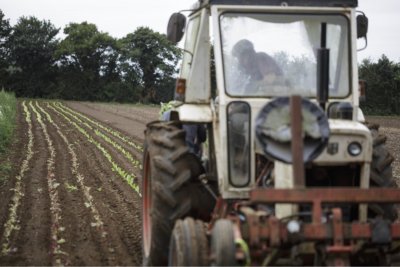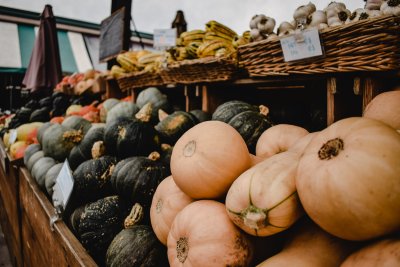The Food Research Collaboration has recently published a report by Professor Tim Lang and Dr Victoria Shoen, which finds UK production of fruit and vegetables has dropped and is not sufficient to meet guidelines for healthy diets.
Co-authors Professor Lang and Dr Schoen said:
“We worry that government strategy looks a bit like allowing Europe to feed the UK with good healthy produce – fruit and veg – while our food industry exports less desirable elements – alcohol and over-processed, sugary, fatty foods. Actually, horticulture offers something relatively simple to improve matters. Grow more here, but make it sustainable production only.”
The report, Horticulture in the UK: potential for meeting dietary guideline demands, paints a sober picture of a mismatch between supply and demand in the UK, particularly in light of public health advice to eat more fruit and vegetables. Drawing on official and unpublished data, authors Dr Schoen and Professor Lang show:
- There has been a big decline in the area given to UK horticultural production. From 1985 to 2014, there has been a decline of 27% for fruit and vegetables combined. The area growing vegetables has declined by 26% and the area growing fruit by 35%.
- Fruit and vegetables are by far the greatest source of imports in the UK food system. The trade gap in horticulture has risen to £7.8 billion a year, about 37% of the UK’s total food trade gap of £21 billion in 2014. Although some growers have extensive growing operations in Southern Europe and further afield, this makes sense for them as commercial enterprises but still does not resolve the serious lack of UK horticultural output.
- Some imports (e.g. pineapples, avocados) cannot currently be grown in the UK but others which could be UK grown (e.g. brassicas, mushrooms, lettuce, apples, pears) have seen serious drops in production.
- The proportion of the adult population (over 16 years) in the UK consuming five or more portions of fruit and vegetables per day peaked in 2006 at 28% of males and 32% of females.
- Only 9% of 11-15 year olds achieved an intake of five-a-day or more in the period 2008/09-2011/12, and only 14% of 16-24 year olds.
The new briefing paper makes a series of recommendations:
- The Government (Defra) forthcoming 25-year food and farming plan should apply a ‘health lens’ to its proposed focus on ‘Brand Britain’.
- Government, growers, land use specialists, industry and regional bodies should begin to plan the infrastructure needed for a massive reinvestment in, and policy support for, horticulture.
- Public health and environmental analysts should work more clearly on how to narrow the gap between supply of, and demand for, fruit and vegetables. Modelling studies as well as practical investigations should be funded.
- A new research strand should be set up by the Government Research Councils into how to build demand for more sustainable home production.
- A new more unified voice between all parties is needed to champion the British horticultural sector; this lack should be the subject of linked (or even joint) inquiries by the Parliamentary Health, Environmental Audit, BIS, and Environment, Food & Rural Affairs Committees.
To read the full report from the Food Research Collaboration, please visit http://foodresearch.org.uk/horticulture-in-the-uk/
Published Wednesday 30 March 2016
Sustain: Sustain The alliance for better food and farming advocates food and agriculture policies and practices that enhance the health and welfare of people and animals, improve the working and living environment, enrich society and culture and promote equity.





